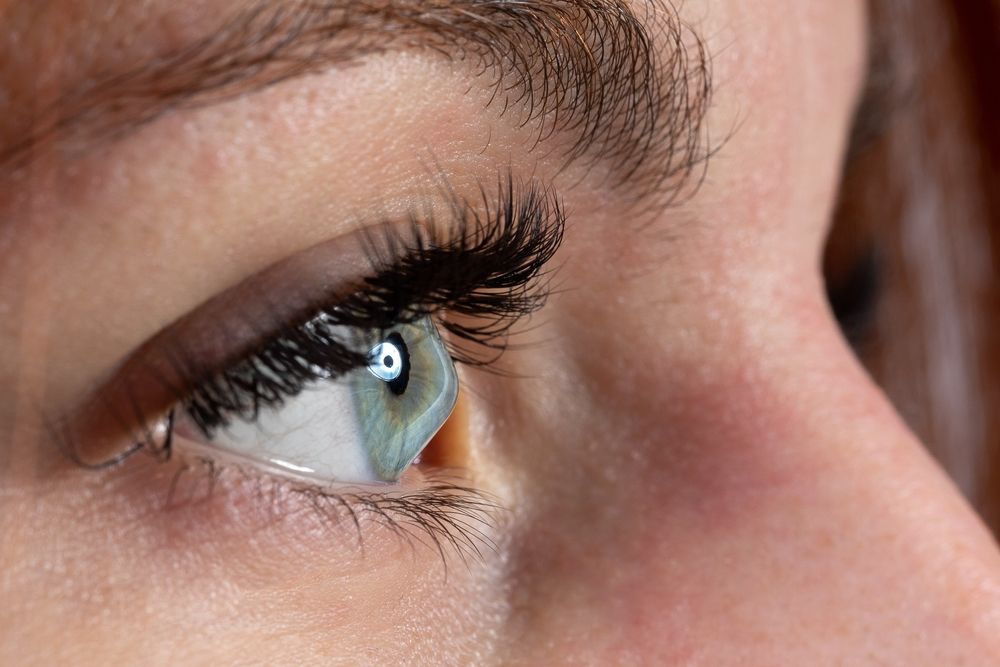The human eye is a remarkable organ that allows us to see the world in detail, from the smallest print on a page to distant landscapes. A key component of this visual capability is a process known as “accommodation.” This process enables the eye to focus on objects at varying distances by adjusting the shape of the lens. Understanding accommodation can help us appreciate how our vision works and why it changes with age. At Colorado Eye Clinic, Dr. Abed Namavari provides personalized care to ensure your eyes are functioning at their best, offering timely appointments and detailed consultations to patients in Greenwood Village, Centennial, and Southglenn.
What is Accommodation?
Accommodation is the eye’s ability to change its focus from distant to near objects, and vice versa. This is achieved by altering the shape of the eye’s lens, which sits just behind the pupil. When you look at something far away, the lens is thinner and flatter. As you shift your focus to something closer, the lens becomes thicker and rounder. This adjustment allows light to be refracted properly, so it lands on the retina at the back of the eye, creating a clear image.
The ciliary muscles and the lens work together to control accommodation. When these muscles contract, the lens becomes more curved, enabling you to focus on nearby objects. When the muscles relax, the lens flattens, allowing you to see distant objects more clearly. This entire process happens almost instantaneously, allowing us to shift our focus without even thinking about it.
At Colorado Eye Clinic, Dr. Namavari spends significant face-to-face time with each patient to explain how accommodation works and why changes in this process can affect your vision over time.
The Role of the Lens in Accommodation
The lens plays a central role in accommodation, and it is one of the most flexible parts of the eye when we are young. The lens is composed of transparent proteins arranged in a unique structure that allows it to change shape. This elasticity is crucial for focusing on objects at different distances. However, as we age, the lens becomes less flexible, which can lead to difficulty in focusing on near objects—a condition known as presbyopia.
The flexibility of the lens and the efficiency of the ciliary muscles are essential for maintaining clear vision. At Colorado Eye Clinic in Greenwood Village, Dr. Namavari utilizes advanced imaging techniques to assess the health of your lens and muscles, ensuring that any issues with accommodation are identified early.
How Does Aging Affect Accommodation?
One of the most common age-related vision changes involves accommodation. As we grow older, the lens of the eye gradually loses its flexibility, making it harder to focus on nearby objects. This condition, called presbyopia, typically begins to affect people in their 40s and progresses over time.
At first, individuals may notice that they need to hold reading materials further away to see them clearly. Over time, they may require reading glasses or bifocals to compensate for the loss of accommodation. Presbyopia is a natural part of aging, but that doesn’t mean you have to live with blurred vision or eye strain.
At Colorado Eye Clinic, Dr. Namavari offers a variety of solutions for presbyopia, ranging from prescription glasses to more advanced treatments like intraocular lenses. By taking the time to explain all treatment options in detail, Dr. Namavari ensures that patients can make informed decisions about their eye care.
Conditions That Impact Accommodation
Beyond the natural aging process, several other factors can affect accommodation. Conditions like cataracts, which cloud the lens, can interfere with its ability to change shape and focus light properly. In such cases, cataract surgery may be necessary to restore clear vision.
Another condition that affects accommodation is hyperopia (farsightedness). In people with hyperopia, the eye is too short, causing light to focus behind the retina. This can make it difficult to focus on close-up objects, even when the lens tries to compensate. Astigmatism, where the cornea is irregularly shaped, can also complicate the eye’s ability to focus correctly.
Patients at Colorado Eye Clinic benefit from timely and thorough exams that assess all aspects of their eye health. Whether you’re dealing with presbyopia, cataracts, or other conditions affecting accommodation, Dr. Namavari is committed to providing personalized treatment plans that address each patient’s unique needs.
The Importance of Timely Eye Care
When it comes to accommodation and other aspects of eye health, early detection and treatment are crucial. Changes in your ability to focus can develop gradually, and many people don’t notice the impact on their vision until it starts interfering with daily activities. Regular eye exams allow for the early identification of issues like presbyopia, cataracts, or hyperopia, making it easier to manage these conditions before they progress.
At Colorado Eye Clinic, we understand the importance of timely care. With a streamlined approach that includes same-day appointments, patients in Greenwood Village, Centennial, and Southglenn can receive the eye care they need without unnecessary delays. From check-in to check-out, the entire process is handled by just two people—one staff member and Dr. Namavari—ensuring that every patient gets personalized attention and efficient service.
How Colorado Eye Clinic Can Help
Dr. Namavari’s approach to eye care at Colorado Eye Clinic is designed to meet the individual needs of each patient. Whether you’re experiencing issues with accommodation due to age, or you have a more complex condition like cataracts or astigmatism, Dr. Namavari takes the time to explain your options in detail.
Patients also benefit from the clinic’s accessibility. If you have any questions about your treatment or need follow-up care, you can reach Dr. Namavari via phone, text, or email with the assurance that you’ll get a response the same day. This level of commitment to patient care is just one of the reasons why Colorado Eye Clinic is a trusted choice for eye care in Greenwood Village and beyond.
Managing Changes in Accommodation
If you’re experiencing difficulty focusing on near or distant objects, it’s important to schedule an eye exam as soon as possible. At Colorado Eye Clinic, Dr. Namavari will evaluate your vision and determine whether changes in accommodation are affecting your ability to see clearly. From there, he will recommend the best course of action, which may include prescription lenses, contact lenses, or even surgical options.
For patients with presbyopia, bifocals or progressive lenses are often recommended to help the eyes adjust to both near and distant tasks. In cases where cataracts are impacting the lens’s ability to focus, cataract surgery can restore clear vision and improve accommodation.
Dr. Namavari’s personalized approach ensures that each patient receives the treatment plan that best suits their lifestyle and vision needs.
Looking Forward: Maintaining Optimal Eye Health
Understanding accommodation is key to maintaining clear vision throughout your life. While aging naturally affects the eye’s ability to focus, regular eye exams and timely interventions can help manage these changes effectively. At Colorado Eye Clinic in Greenwood Village, Dr. Namavari offers personalized care for all types of vision concerns, including accommodation issues.
By focusing on patient education and providing accessible, timely care, Colorado Eye Clinic ensures that each patient receives the attention and treatment they deserve. Whether you’re in Greenwood Village, Centennial, or Southglenn, Dr. Namavari and his team are here to help you maintain optimal eye health for years to come.
Sources:
- Glasser, A., & Kaufman, P. L. (1999). The Mechanism of Accommodation in Primates. Ophthalmology and Vision Science.
- Ostrin, L. A., & Glasser, A. (2007). Accommodation and the Anterior Segment in Monkeys. Vision Research.
- Kasthurirangan, S., Markwell, E. L., Atchison, D. A., & Pope, J. M. (2011). MRI Study of Accommodation in Human Eyes. Investigative Ophthalmology & Visual Science.

